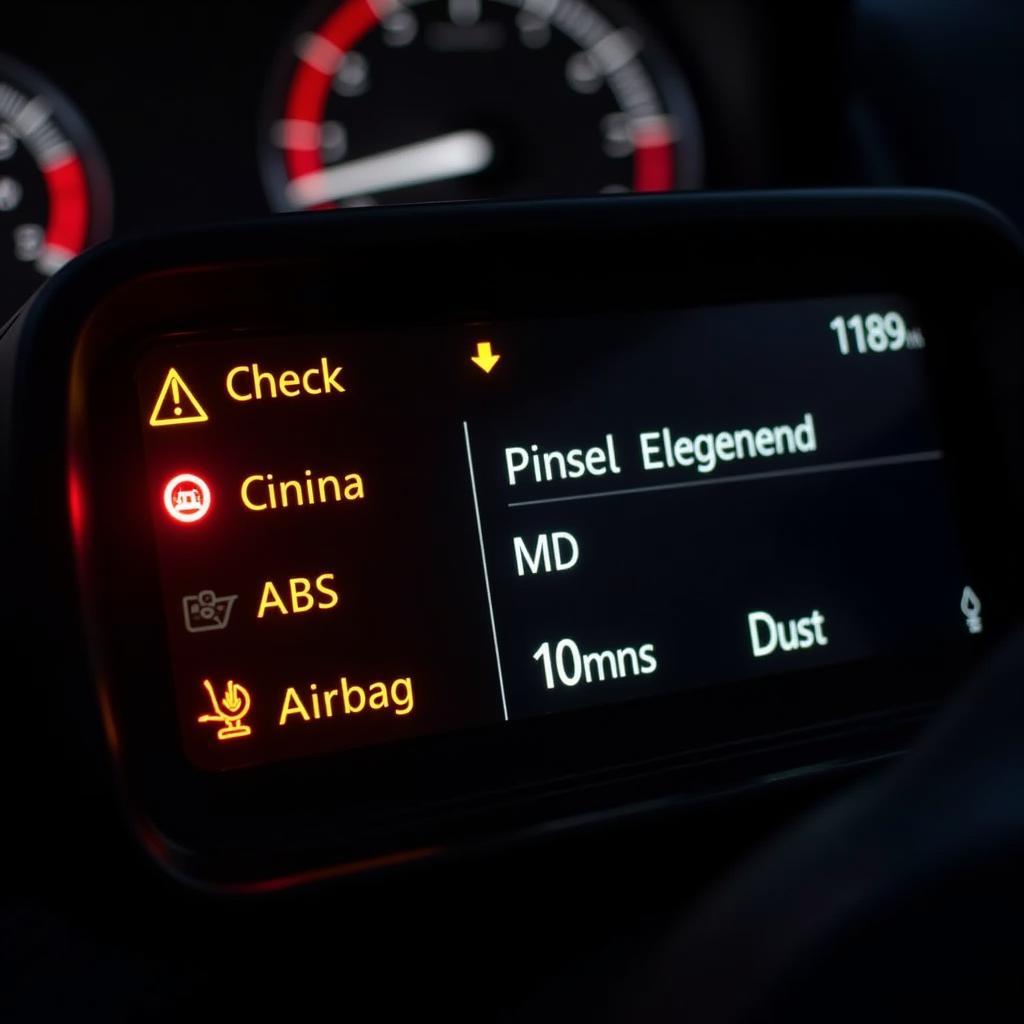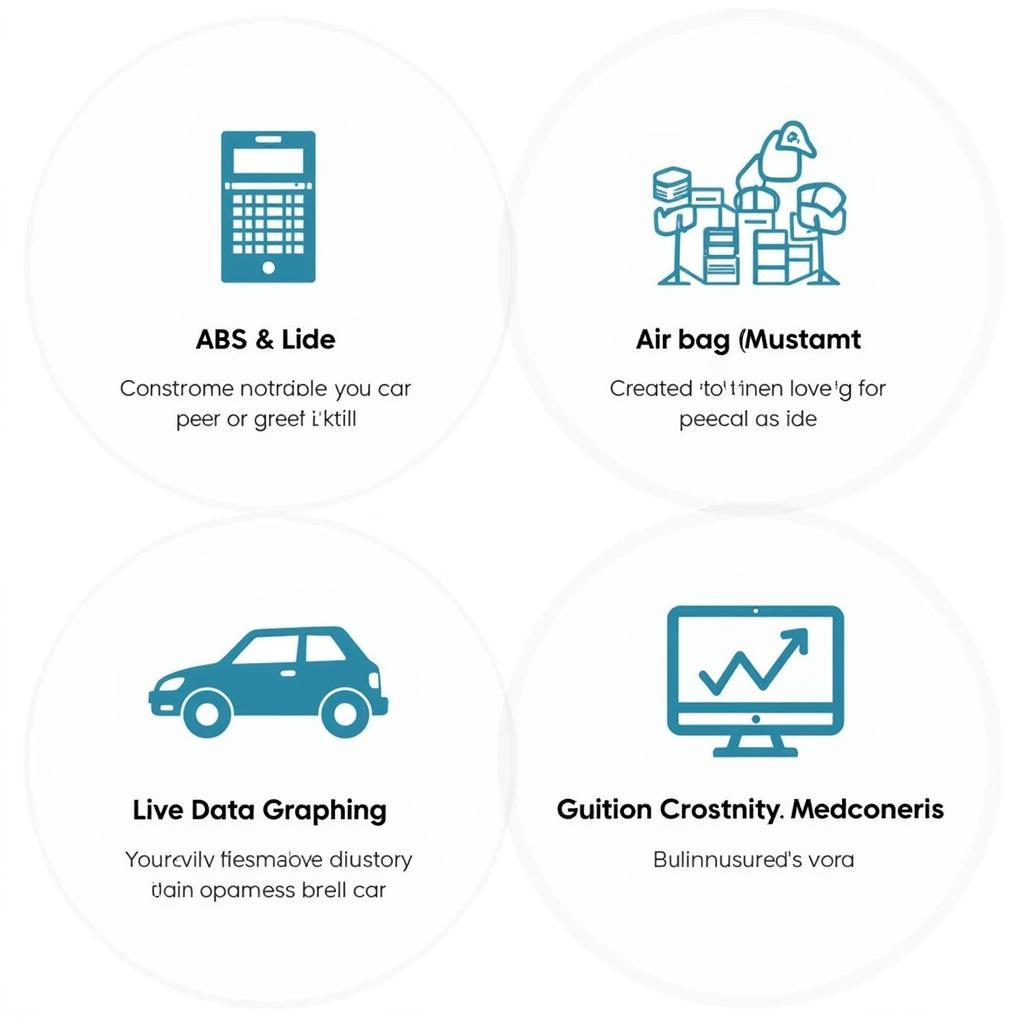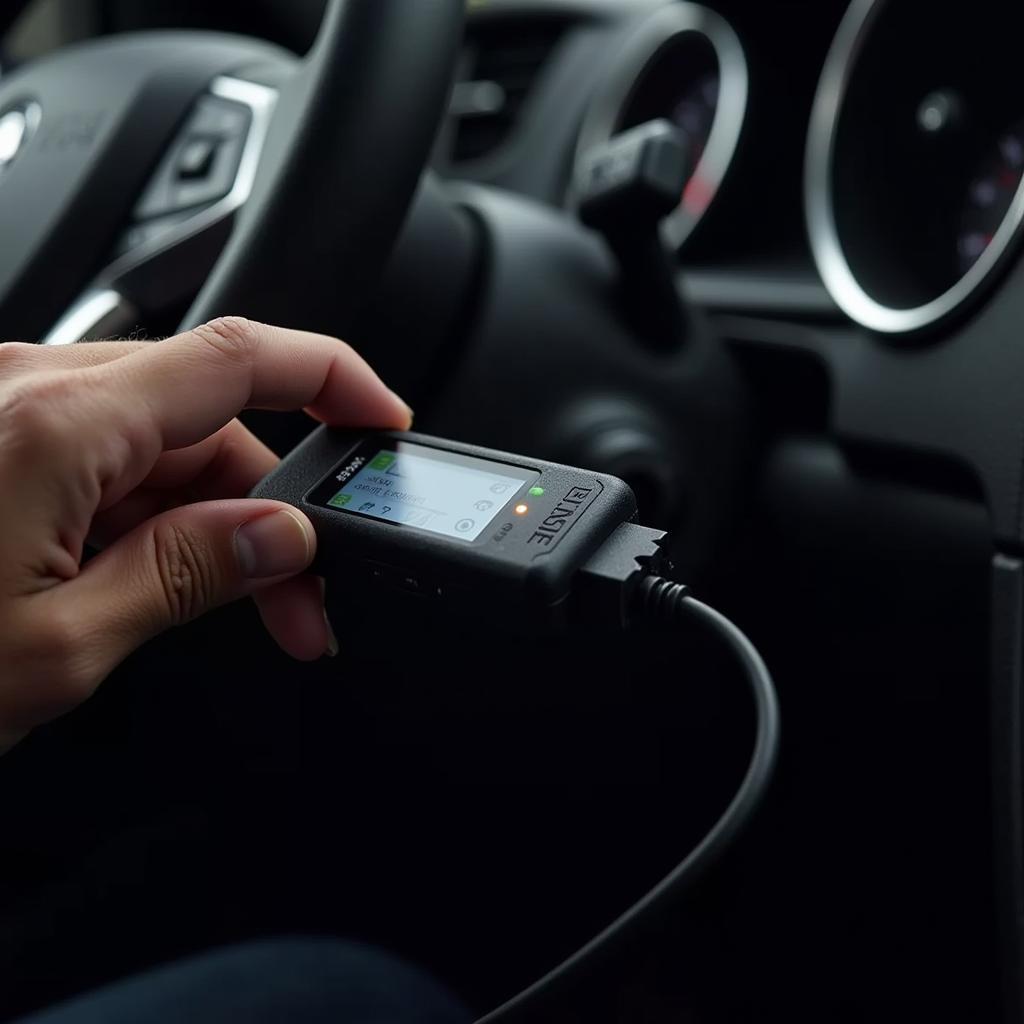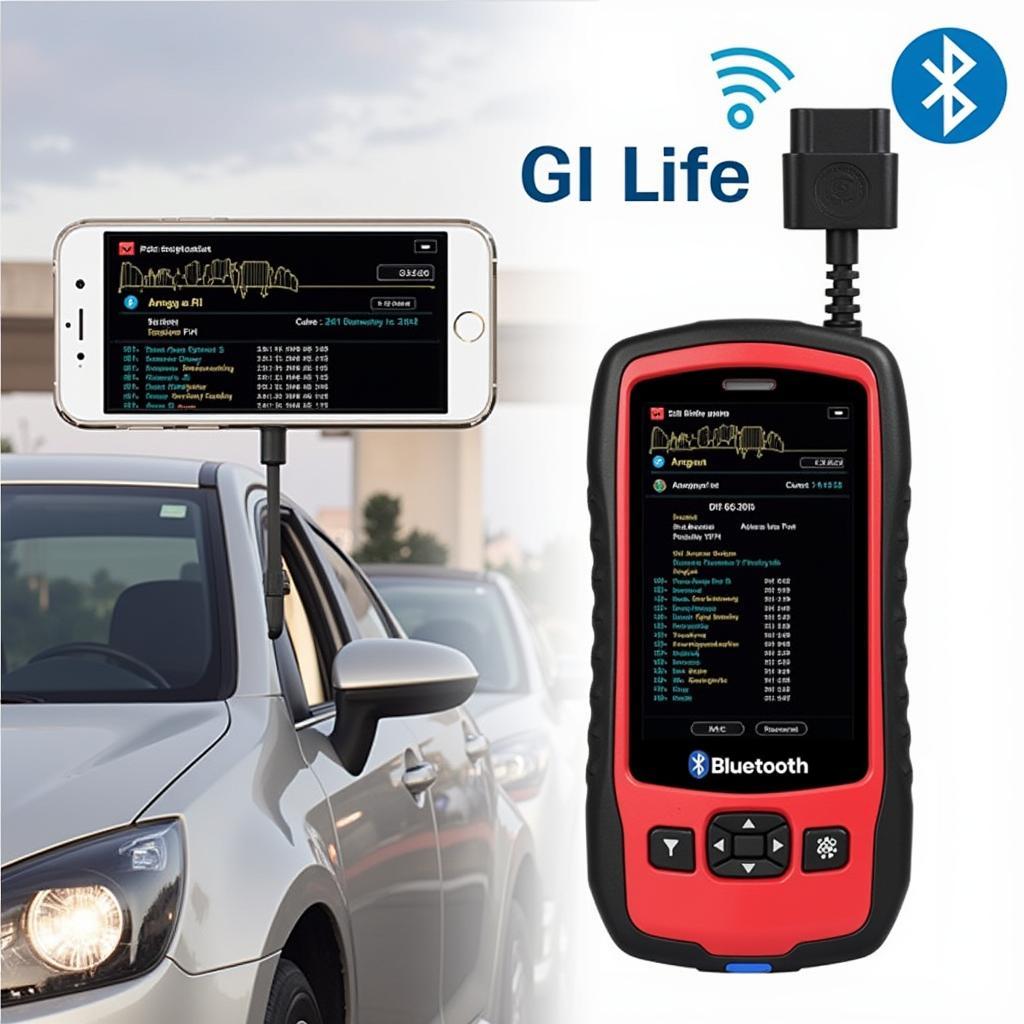In today’s world, cars are becoming increasingly complex, and gone are the days when a simple wrench set could solve most mechanical issues. Now, even the most skilled mechanics rely on advanced technology to diagnose and fix car problems. This is where the Best Diagnostic Car Tool comes into play, providing a window into your vehicle’s computer system to reveal hidden problems.
 Mechanic using a best car diagnostic tool
Mechanic using a best car diagnostic tool
Whether you’re a car enthusiast wanting to understand your vehicle better, a DIY mechanic tackling repairs at home, or a professional workshop aiming to upgrade its diagnostic capabilities, choosing the right car diagnostic tool can save you time, money, and frustration. This guide will delve into the intricacies of choosing the best diagnostic car tool, equipping you with the knowledge to make an informed decision.
Understanding the Importance of a Car Diagnostic Tool
Before we explore the different types and features, it’s crucial to understand why a car diagnostic tool is so important. Modern vehicles are equipped with Engine Control Units (ECUs) that monitor various systems and sensors. When a problem arises, the ECU logs a Diagnostic Trouble Code (DTC). A car diagnostic tool allows you to read these codes, effectively translating the car’s language into understandable terms.
 Car diagnostic tool displaying warning lights
Car diagnostic tool displaying warning lights
Instead of second-guessing or taking your car to a mechanic for every hiccup, a diagnostic tool empowers you to:
- Identify the root cause of a problem: Quickly pinpoint the source of warning lights, strange noises, or performance issues.
- Save money on repairs: Avoid unnecessary trips to the mechanic for simple diagnoses and potentially fix some issues yourself.
- Negotiate better repair costs: Armed with knowledge of the problem, you’re in a stronger position to discuss repairs and costs with a mechanic.
- Stay on top of maintenance: Monitor your car’s health, track sensor data, and anticipate potential issues before they escalate.
Types of Diagnostic Car Tools
The market offers a wide range of diagnostic tools, each tailored to different needs and budgets. Understanding the different types can help you narrow your search.
1. Basic Code Readers
As the name suggests, basic code readers are entry-level tools designed to read and clear basic DTCs. They are generally affordable and user-friendly, making them suitable for car owners who want to understand basic engine issues.
Pros:
- Affordable
- Easy to use
- Read and clear basic DTCs
Cons:
- Limited functionality
- May not work on all car models
2. OBD2 Scanners
OBD2 scanners are more advanced than basic code readers and offer a wider range of features. They can access live data streams from the ECU, allowing you to monitor engine parameters, sensor readings, and more. Some models may offer additional functions like ABS and airbag system checks.
Pros:
- More features than basic code readers
- Access live data streams
- Some models offer ABS and airbag system checks
Cons:
- Can be more expensive than basic code readers
- May require some technical knowledge to interpret data
3. Professional-Grade Scan Tools
Professional-grade scan tools are the top-of-the-line option used by mechanics and professional technicians. They offer comprehensive diagnostic capabilities, including advanced functions like bi-directional control, coding, programming, and access to manufacturer-specific systems.
Pros:
- Comprehensive diagnostic functions
- Advanced features like bi-directional control and coding
- Access to manufacturer-specific systems
Cons:
- Most expensive option
- Requires professional training and experience to fully utilize
Key Features to Consider
With numerous options available, selecting the best car diagnostic tool for iphone, for use in Australia, or for sale on platforms like eBay requires considering several key features:
- Vehicle Compatibility: Ensure the tool is compatible with your car’s make, model, and year. This information is usually specified in the product description.
- Software Updates: Regular software updates are crucial for ensuring compatibility with newer car models and accessing the latest features.
- User Interface: An intuitive and user-friendly interface significantly impacts usability, especially for beginners.
- Additional Features: Depending on your needs, consider features like live data graphing, printing capabilities, battery and alternator testing, and more.
 Display of various car diagnostic tool features
Display of various car diagnostic tool features
Choosing the Right Tool for You
Selecting the best diagnostic car tool ultimately depends on your individual needs and budget:
- For Car Owners: A basic code reader or an OBD2 scanner with essential features like live data streaming is a great starting point.
- For DIY Mechanics: An OBD2 scanner with additional features like ABS and airbag checks can be beneficial for tackling more complex repairs.
- For Professional Mechanics: A professional-grade scan tool is essential for comprehensive diagnostics, advanced programming, and access to manufacturer-specific systems.
Conclusion
Investing in the best diagnostic car tool is a wise decision for any car owner or mechanic. It’s a powerful tool that can save you time, money, and frustration by providing invaluable insights into your vehicle’s health. By understanding the different types, key features, and your specific needs, you can confidently choose the right tool to keep your car running smoothly for years to come.
Need help choosing the perfect car diagnostic tool? Our team at CARW Workshop is here to help! Contact us at +1 (641) 206-8880 or visit our office at 4 Villa Wy, Shoshoni, Wyoming, United States.
FAQs
1. Can I use a car diagnostic tool on any car?
Car diagnostic tools have varying compatibility. It’s crucial to check the tool’s specifications to ensure it supports your car’s make, model, and year.
2. What is an OBD-II port?
The OBD-II port is a standardized 16-pin connector found in most cars manufactured after 1996. Diagnostic tools connect to this port to communicate with the car’s computer system.
3. Do I need a professional to use a car diagnostic tool?
Basic code readers and OBD2 scanners are designed for user-friendliness. However, professional-grade tools require specialized knowledge and training.
4. How often do I need to update my car diagnostic tool’s software?
Manufacturers frequently release software updates to ensure compatibility with new car models and provide access to the latest features. It’s best to check for updates regularly.
5. Can a car diagnostic tool fix car problems?
While a diagnostic tool can identify the root cause of a problem, it doesn’t fix it. It provides the information needed to determine the necessary repairs.







